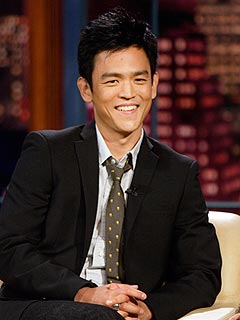The world seems surprised that an 85-year-old globe-trotting pope who just started tweeting wants to resign, but should it be? Maybe what should be surprising is that more leaders his age do not, considering the toll aging takes on bodies and minds amid a culture of constant communication and change.
There may be more behind the story of why Pope Benedict XVI decided to leave a job normally held for life. But the pontiff made it about age. He said the job called for "both strength of mind and body" and said his was deteriorating. He spoke of "today's world, subject to so many rapid changes," implying a difficulty keeping up despite his recent debut on Twitter.
"This seemed to me a very brave, courageous decision," especially because older people often don't recognize their own decline, said Dr. Seth Landefeld, an expert on aging and chairman of medicine at the University of Alabama at Birmingham.
Age has driven many leaders from jobs that used to be for life — Supreme Court justices, monarchs and other heads of state. As lifetimes expand, the woes of old age are catching up with more in seats of power. Some are choosing to step down rather than suffer long declines and disabilities as the pope's last predecessor did.
Since 1955, only one U.S. Supreme Court justice — Chief Justice William Rehnquist — has died in office. Twenty-one others chose to retire, the most recent being John Paul Stevens, who stepped down in 2010 at age 90.
When Thurgood Marshall stepped down in 1991 at the age of 82, citing health reasons, the Supreme Court justice's answer was blunt: "What's wrong with me? I'm old. I'm getting old and falling apart."
One in 5 U.S. senators is 70 or older, and some have retired rather than seek new terms, such as Hawaii's Daniel Akaka, who left office in January at age 88.
The Netherlands' Queen Beatrix, who just turned 75, recently said she will pass the crown to a son and put the country "in the hands of a new generation."
In Germany, where the pope was born, Chancellor Angela Merkel, who is 58, said the pope's decision that he was no longer fit for the job "earns my very highest respect."
"In our time of ever-lengthening life, many people will be able to understand how the pope as well has to deal with the burdens of aging," she told reporters in Berlin.
Experts on aging agreed.
"People's mental capacities in their 80s and 90s aren't what they were in their 40s and 50s. Their short-term memory is often not as good, their ability to think quickly on their feet, to execute decisions is often not as good," Landefeld said. Change is tougher to handle with age, and leaders like popes and presidents face "extraordinary demands that would tax anybody's physical and mental stamina."
Dr. Barbara Messinger-Rapport, geriatrics chief at the Cleveland Clinic, noted that half of people 85 and older in developed countries have some dementia, usually Alzheimer's. Even without such a disease, "it takes longer to make decisions, it takes longer to learn new things," she said.
But that's far from universal, said Dr. Thomas Perls, an expert on aging at Boston University and director of the New England Centenarians Study.
"Usually a man who is entirely healthy in his early 80s has demonstrated his survival prowess" and can live much longer, he said. People of privilege have better odds because they have access to good food and health care, and tend to lead clean lives.
"Even in the 1500s and 1600s there were popes in their 80s. It's remarkable. That would be today's centenarians," Perls said.
Arizona Sen. John McCain turned 71 while running for president in 2007. Had he won, he would have been the oldest person elected to a first term as president. Ronald Reagan was days away from turning 70 when he started his first term as president in 1981; he won re-election in 1984. Vice President Joe Biden just turned 70.
In the U.S. Senate, where seniority is rewarded and revered, South Carolina's Strom Thurmond didn't retire until age 100 in 2002. Sen. Robert Byrd of West Virginia was the longest-serving senator when he died in office at 92 in 2010.
Now the oldest U.S. senator is 89-year-old Frank Lautenberg of New Jersey. The oldest congressman is Ralph Hall of Texas who turns 90 in May.
The legendary Alan Greenspan was about to turn 80 when he retired as chairman of the Federal Reserve in 2006; he still works as a consultant.
Elsewhere around the world, Cuba's Fidel Castro — one of the world's longest serving heads of state — stepped down in 2006 at age 79 due to an intestinal illness that nearly killed him, handing power to his younger brother Raul. But the island is an example of aged leaders pushing on well into their dotage. Raul Castro now is 81 and his two top lieutenants are also octogenarians. Later this month, he is expected to be named to a new, five-year term as president.
Other leaders who are still working:
—England's Queen Elizabeth, 86.
—Abdullah bin Abd al-Aziz al-Saud, king of Saudi Arabia, 88.
—Sabah al-Ahmad al-Jaber al-Sabah, emir of Kuwait, 83.
—Ruth Bader Ginsburg, U.S. Supreme Court associate justice, 79.
__
Associated Press writers Paul Haven in Havana, Cuba; David Rising in Berlin; Seth Borenstein, Mark Sherman and Matt Yancey in Washington, and researcher Judy Ausuebel in New York contributed to this report.
___
Marilynn Marchione can be followed at http://twitter.com/MMarchioneAP











